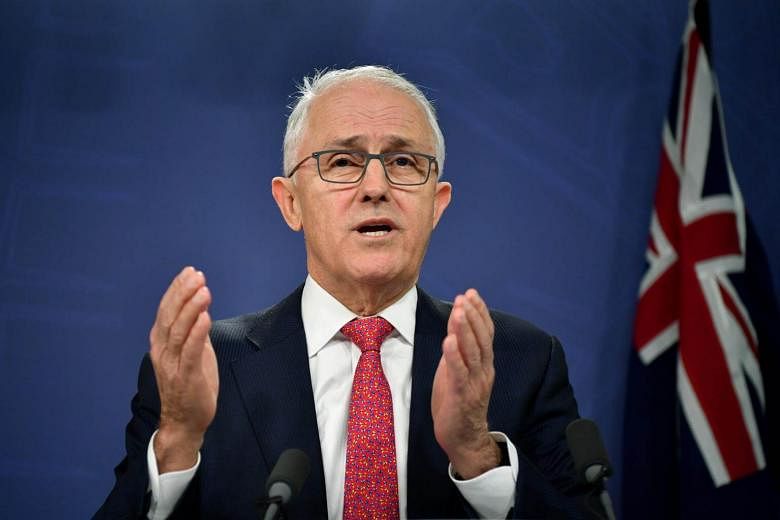Australia dramatically reduced its intake of migrants last year but Prime Minister Malcolm Turnbull is facing calls to make further cuts to ease the population pressures on major cities.
The migrant intake during the last year was 162,417 - an 11 per cent drop from the previous year and a 15 per cent decline from a peak of 190,000 five years ago. This meant there were 12,000 fewer skilled migrant visas and 8,000 fewer family visas issued last year.
Home Affairs Minister Peter Dutton, who supports migration cuts, said the reduction came from tighter vetting, for instance, of "fraudulent" claims by applicants. This extra oversight by immigration officials led to a 46 per cent increase in visa refusals.
"I want to make sure that we scrutinise each application so that we're getting… people who are going to work, not be on welfare, people who are going to integrate into our community," he told Channel Nine.
"We want to make sure particularly that, say, people coming through the spousal programme are (in) legitimate relationships."
Australia has one of the biggest migrant programmes in the developed world, mainly of skilled workers who help to address specific shortages. About 28 per cent of Australia's population was born overseas, a proportion higher than any other country in the Organisation for Economic Cooperation and Development, aside from Luxembourg and Switzerland.
But there are growing calls to reduce the numbers amid concerns about the quality of life in large cities such as Sydney and Melbourne. Both cities are dealing with greater traffic congestion, and property prices have soared.
A Newspoll opinion survey last Monday found 72 per cent of people supported the ruling Liberal-National coalition's reduced intake of migrants, with 23 per cent opposed and 5 per cent uncommitted.
Liberal MP Dean Smith said last week he had written to Mr Turnbull to call for a parliamentary inquiry to examine migration levels. Mr Smith said fewer migrants could "perhaps give ourselves some time to breathe, some time to pause and reflect".
The migrant intake has fuelled a larger-than-expected increase in the nation's population, which is due to pass 25 million next month. In 2011, the government had forecast that the population would not reach 25 million until 2027.
But the business community, while it tends to side with the centre-right coalition, has strongly opposed limiting immigration, warning that this would take a heavy toll on the economy.
The Australian Industry Group, which represents employers and businesses, urged the government to increase migration instead and lift the intake towards the 190,000 limit. The group's head, Mr Innes Willox, said migrants boosted growth and added to the nation's "entrepreneurship, innovation and international linkages".
"We are strong supporters of the migration programme and to see it drop so significantly below the 2017-18 intake ceiling is disappointing," he told SBS News on July 12.
The Small Business Council of Australia said a lack of migrants would make it harder to find workers, especially in retail and manufacturing.
Australia's migration programme has changed in the past two decades as the focus shifted from admitting family members of residents to bringing in skilled workers. About two-thirds of the migrant intake last year were on skilled visas, with the remainder largely on family visas.



